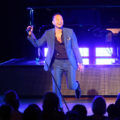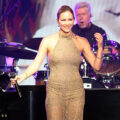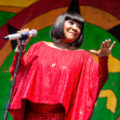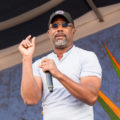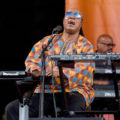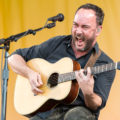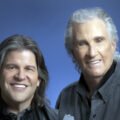Was (Not Was) co-founder, Wolf Bro, A-list producer Don Was introducing Pan-Detroit Ensemble to Space
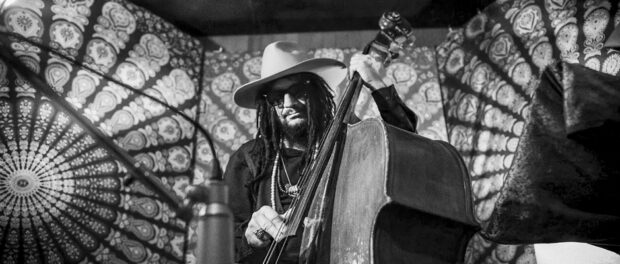 Photos provided by Miryam Ramos and Todd Michalek
Photos provided by Miryam Ramos and Todd Michalek
Scan the credits of countless recordings throughout the past four decades and chances are multiple Grammy Award winner Don Was will appear repeatedly, especially when it comes to working alongside the legends.
In the producer’s chair, he’s teamed with The Rolling Stones, Bob Dylan, Garth Brooks, The Beach Boys’ Brian Wilson, Bonnie Raitt, The B-52’s and John Mayer, to name but a few, while currently serving as the president of the jazz-based Blue Note Records.
As an artist, he’s of course the co-founder of Was (Not Was), the group responsible for funk/pop favorites “Walk The Dinosaur” and “Spy In The House Of Love,” plus now holds down the double bass beat in Grateful Dead offshoot act Bob Weir & Wolf Bros.
But his latest venture, fronting The Pan-Detroit Ensemble, refuses to rest on any of those laurels, and as Was tells Chicago Concert Reviews prior to preforming at Space for two shows on Wednesday, May 22, it may very well be the visionary’s most fully realized project, which is really saying something for a guy who’s had a hand in selling upwards of 100 million albums.
How would you describe The Pan-Detroit Ensemble to those who’ve yet to hear it?
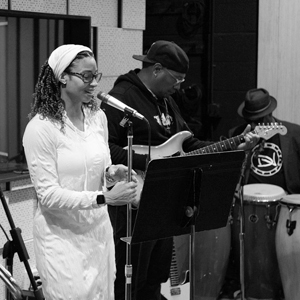 Don Was: Basically, I’ll give you the history of it. Terence Blanchard curates a series for the Detroit Symphony and he put together a concert series of Detroit-based jazz shows, like Kenny Garrett is doing one this month. About two years ago, he booked me to do something this May and I didn’t have a band together or anything, so I really started thinking about what to do for this. It turned out to be a wonderful opportunity because I’ve been chasing down a sound in my head for about 35 years that we’ve never quite got fully realized as it had to do with something about the sound of Detroit music. There’s definitely a thing to Detroit. You can hear it in guys like John Lee Hooker, the MC5, Donald Byrd and Joe Henderson. You can hear it in Fortune Records and Motown Records. There’s a deep groove to it, but it’s kind of raw. It swings like crazy, but it’s raw and unpretentious. There’s not a sheen on top of it, but it’s deeply soulful, like the city.
Don Was: Basically, I’ll give you the history of it. Terence Blanchard curates a series for the Detroit Symphony and he put together a concert series of Detroit-based jazz shows, like Kenny Garrett is doing one this month. About two years ago, he booked me to do something this May and I didn’t have a band together or anything, so I really started thinking about what to do for this. It turned out to be a wonderful opportunity because I’ve been chasing down a sound in my head for about 35 years that we’ve never quite got fully realized as it had to do with something about the sound of Detroit music. There’s definitely a thing to Detroit. You can hear it in guys like John Lee Hooker, the MC5, Donald Byrd and Joe Henderson. You can hear it in Fortune Records and Motown Records. There’s a deep groove to it, but it’s kind of raw. It swings like crazy, but it’s raw and unpretentious. There’s not a sheen on top of it, but it’s deeply soulful, like the city.
And it’s kinda genre non-specific, I think, because we grew up in such a cultural jambalaya where after World War II, all these workers came to work in the factories in Detroit. They came from all over the world and they brought their cultures with them, so you grew up in the middle of all of the stuff, taking it all in. There are a lot of musicians my age, or just a little bit younger, who grew up hearing all these things at the same time. What I decided to do was go back to where I came from and put a band together with people who grew up speaking the Detroit musical language and I convened with these guys, some of whom I’ve played with for 40 years…I’ve known all the people in this band for a while and I know we’re all like-minded individuals. We got in a room in October just to make sure the chemistry worked and it clicked from, like, the first note. It was clear we were all operating on the same wave length.
I’ll tell you a story. The first time I met Stevie Wonder was in the ‘90s and I was the [musical director] for a TV show that he was gonna do a song on. It was show time and we didn’t know what song he wanted to do or what key he wanted to do it in (laughs), so I had to go to his dressing room and try to get an answer to the question. His brother said, “I will give you a minute-and-a-half to talk to him and then I’m coming in to get ya.” So I went into the dressing room and we started talking. He was super nice, and very forthcoming, and his brother Milton, as promised, came in a minute-and-a-half later and he said, “alright, time to go,” and Stevie said, “no, let him stay. He sounds like home.” And he was talking about my accent, the way I hit the consonants, like a guy from Detroit. He found it soothing and comfortable to hear someone talk with a Detroit accent, and the same thing happens in music. There’s a Detroit accent in the musical language too and we all spoke the same tongue in this band that I’ve put together.
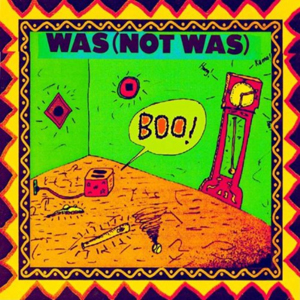 I knew we should do more dates than just this one thing for Terence’s series, so we booked a whole tour, but Evanston is the second show ever that we’re gonna play (laughs)…I’ve done this a couple other times and there’s nothing like the first couple of shows. There’s a beginner’s mind that you hit where you know the music, but where it can go, you don’t know that yet. So you set out with a really adventurous spirit and you test the parameters of how far you can take it. You can never get back to that again. There’s something magical about the first shows, so I’m really looking forward to playing at Space.
I knew we should do more dates than just this one thing for Terence’s series, so we booked a whole tour, but Evanston is the second show ever that we’re gonna play (laughs)…I’ve done this a couple other times and there’s nothing like the first couple of shows. There’s a beginner’s mind that you hit where you know the music, but where it can go, you don’t know that yet. So you set out with a really adventurous spirit and you test the parameters of how far you can take it. You can never get back to that again. There’s something magical about the first shows, so I’m really looking forward to playing at Space.
What’s planned in terms of the repertoire? Originals, covers or your catalogue?
Was: All of the above. We’re drawing from all of it, but I’m making it apply to this group of people who are there. There are a couple of real deep Was (Not Was) cuts (laughs) that we’re gonna play, probably songs that most people have probably never heard. There’s something from the “Orquestra Was” album that I did for Verve in the ‘90s with Herbie Hancock and Terence that I’m on. There’s something on the “Backbeat” soundtrack I did in the ‘90s. There’s new stuff. We’re working on a Yusef Lateef song and then an old Olu Dara song. There’s a piece The Gap Band sung that’s up online now that we did in our rehearsals in October, so it’s gonna draw from a lot of influences, but it sounds like Detroit and like these nine people.
There’s a chemistry there and we know that music, that sound speaks a kind of universal language. Detroit music is well received all over the world. We’ve got a three-week tour that will follow on the heels of the Evanston shows and then we just booked another month for September. We’re gonna keep it going…When you’ve got a combination like that where everybody clicks together, you don’t take it lightly and you don’t break it up (laughs).
I think a lot of bands, it takes ‘em a while, like the Stones is a really good example of a band that speaks their own internal language that comes from playing together for more than 60 years and Duke Ellington’s bands, when he had Johnny Hodges and Billy Strayhorn. There was a thing that they began developing material for those particular people in that band, so this band’s got a thing, and when you’ve got that, you stick with it.
Are there any previous performances around town that have stuck out in your memory or feelings for the area in general?
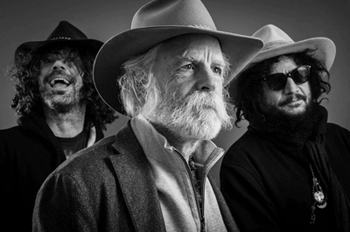 Was: I consider Chicago is the dapper big brother of Detroit (laughs), so I can relate to it. I love spending time there. I’ve played a bunch. I think the most memorable show was we were on tour with Weir. We were on a two-night stand and it was when COVID was just hitting. During the intermission of the show, we found out the NBA closed down and that Tom Hanks was the first famous guy to get COVID making a movie in Australia. Everyone was freaking out, so they canceled our second night and we found out half way through the show on the first night. It was our first [at the] Chicago Theatre. We found out that we were going to finish that night out and that was the end of our tour. We were just getting going. We had another couple of weeks left and we were gonna go home the next day. I’ll never forget it. There was just such a feeling of impeding doom. It reminded me of that movie “On The Beach” (laughs) from the ‘50s where they gather on the beach. There’s a nuclear war, everyone’s going to die and they’re singing “Waltzing Matilda.” There was such a panic at that point. I remember the show was powerful. We recorded the show and it was actually the last thing we did as a trio. After that, during COVID, we became a ten-piece band. But we recorded that show and we were gonna put it out as an album, in fact, cause it had a real powerful vibe to it.
Was: I consider Chicago is the dapper big brother of Detroit (laughs), so I can relate to it. I love spending time there. I’ve played a bunch. I think the most memorable show was we were on tour with Weir. We were on a two-night stand and it was when COVID was just hitting. During the intermission of the show, we found out the NBA closed down and that Tom Hanks was the first famous guy to get COVID making a movie in Australia. Everyone was freaking out, so they canceled our second night and we found out half way through the show on the first night. It was our first [at the] Chicago Theatre. We found out that we were going to finish that night out and that was the end of our tour. We were just getting going. We had another couple of weeks left and we were gonna go home the next day. I’ll never forget it. There was just such a feeling of impeding doom. It reminded me of that movie “On The Beach” (laughs) from the ‘50s where they gather on the beach. There’s a nuclear war, everyone’s going to die and they’re singing “Waltzing Matilda.” There was such a panic at that point. I remember the show was powerful. We recorded the show and it was actually the last thing we did as a trio. After that, during COVID, we became a ten-piece band. But we recorded that show and we were gonna put it out as an album, in fact, cause it had a real powerful vibe to it.
What has being a member of Bob Weir & Wolf. Brothers brought to the equation of all the other stuff you’ve done?
Was: First of all, there’s something that happens within that band. Everyone’s really listening to each other. There’s a really vibrant musical conversation going on in the true Grateful Dead spirit, and then of course, the Grateful Dead audiences are just incredible audiences to play for. So you get the conversation going in the band, and then the audience joins into that, and you can feel the energy being traded back and forth from stage. Every show that we do with the Wolf Bros and The Wolfpack, there are few moments where everything falls apart (laughs) and there are always, conversely, a few moments where the audience and the band all connect up, and it’s so powerful it blows the roof off the place. Those couple of moments are the most exhilarating moments that a musician can experience.
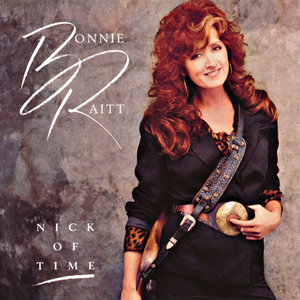 Playing with Bobby in front of the Grateful Dead audience really has made me understand how great playing live music is and that’s why I’ve made my focus on that, maybe for the rest of my life. I’m 72. My fingers are working great and I’m healthy, but I can see the train’s pulling into the station. I can see it off in the distance there, so I want to get as much playing in as I can while my fingers work. I can have another ten good years. Then I see people like Ron Carter, who’s 86 and still a master of the instrument. Charles Lloyd made the best album that he’s made in his life at 86, so there’s hope, but you don’t want to waste a minute of it.
Playing with Bobby in front of the Grateful Dead audience really has made me understand how great playing live music is and that’s why I’ve made my focus on that, maybe for the rest of my life. I’m 72. My fingers are working great and I’m healthy, but I can see the train’s pulling into the station. I can see it off in the distance there, so I want to get as much playing in as I can while my fingers work. I can have another ten good years. Then I see people like Ron Carter, who’s 86 and still a master of the instrument. Charles Lloyd made the best album that he’s made in his life at 86, so there’s hope, but you don’t want to waste a minute of it.
Out of your numerous productions, what do you consider to be your defining ones and why?
Was: Well, the ones that are defining are the ones are where I think the artist comes through the strongest. That’s always the goal, like the Bonnie Raitt album “Nick Of Time” and the one after it, [“Luck Of The Draw”]. It’s the one that’s got “I Can’t Make You Love Me.” Those couple of albums that I made with Bonnie, our goal was to make it feel like Bonnie was right in the car next to you when you played it on your car system. She was sitting real close to you and whispering in your ear, kind of singing right to you. That’s what I always tried to do was just work with great singers who could communicate and help me choose great songs. Make sure the songs were great and that they felt comfortable enough in the studio to give the performances that go deeper, that get under people’s skin. The goal is to make people feel better about life, help ‘em understand the craziness of life, bring ‘em some comfort and joy, help ‘em deal with adversity and help ’em appreciate beauty, so the ones where we come close to that, those are my favorites.
Can you think of anyone you worked alongside that really surprised you?
Was: Yeah, a lot of ‘em. One guy that really stands out is Waylon Jennings. I knew of Waylon and his reputation (laughs) and I recorded him one time with Bob Seger on a song that never came out that should come out. It was for Bob Seger’s album. He called me up. I went to see him. He liked the Bob Dylan album “Oh Mercy.” He liked that kind of ethereal, moody feeling that Daniel Lanois had gotten out and I didn’t see that coming from Waylon. But then when you really go back and examine Waylon’s career, you understand that he was among the first to cut a Kris Kristofferson song. He was the first country artist to cut a Rolling Stones song. He was the first to do an Eagles song. He had a real strong sense of how a song transcends genres. Genre is meaningless and he was just interested in being soulful, and communicative. I didn’t know that going in, but of course when you look back on his work, it’s obvious. I was surprised he was a deep, soulful guy.
Are you ever intimidated by any of these artists? A guy like Dylan is larger than life.
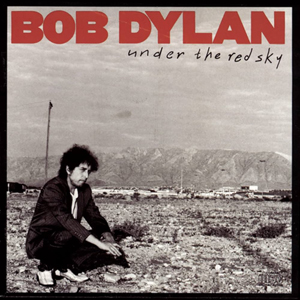 Was: It can be very intimidating. You have to work hard to forget the iconography of it, and to be present, and do your job (laughs). There was one moment I had [when] I was producing Bob Dylan and George Harrison came in to play guitar. Bob was kind of messing with George a little bit, like the way an older brother would, lovingly, but messing with him. So he had the engineer move over and George was overdubbing a solo on a song called “Under The Red Sky.” Bob took the controls for the tape machine and he fast forwarded to the solo. George had never heard the song, didn’t even have time to tune up his guitar. He just knew that there was signal coming through and he said, “okay,” hit “play” and “record,” and George had to play a solo. He spent half of the time trying to figure out what the chords were and what key it was in. And we get to the end of the solo, Bob stops the tape and says, “That’s perfect man. Thank you.” George Harrison turned to me, and I’ve never met George Harrison before, he turned to me and said, “What do you think Don? Help.” And Bob Dylan turned to me and said (imitates voice), “Yeah, what do you think Don?” (laughs).
Was: It can be very intimidating. You have to work hard to forget the iconography of it, and to be present, and do your job (laughs). There was one moment I had [when] I was producing Bob Dylan and George Harrison came in to play guitar. Bob was kind of messing with George a little bit, like the way an older brother would, lovingly, but messing with him. So he had the engineer move over and George was overdubbing a solo on a song called “Under The Red Sky.” Bob took the controls for the tape machine and he fast forwarded to the solo. George had never heard the song, didn’t even have time to tune up his guitar. He just knew that there was signal coming through and he said, “okay,” hit “play” and “record,” and George had to play a solo. He spent half of the time trying to figure out what the chords were and what key it was in. And we get to the end of the solo, Bob stops the tape and says, “That’s perfect man. Thank you.” George Harrison turned to me, and I’ve never met George Harrison before, he turned to me and said, “What do you think Don? Help.” And Bob Dylan turned to me and said (imitates voice), “Yeah, what do you think Don?” (laughs).
Time slowed down for me and their voices dissolved into kind of an echo chamber. I looked at the two of them and I flashed back to the time I wanted to sell my car so I could get a ticket to go see “The Concert For Bangladesh” and now “The Concert For Bangladesh” was two feet away from me asking me what I thought (laughs). I knew Bob was next to me and I knew George deserved to play the solo again (laughs), so a voice kind of popped into my head. It only took a second, but it seemed to take forever. A voice came into my head and said, “Bob’s not paying you to be a fan.” So I snapped out it and I said, “It was good man, but let’s tune up the guitar, try another one, see if we beat it.” George got his shot, Bob was pleased that I moved the thing forward and didn’t just kowtow to him, and I didn’t hurt anybody’s feelings. Benevolent truth was the lesson I learned in terms of producing records. Tell the truth, but be nice.
As an artist yourself, what do you remember about the “What’s Up, Dog?” period becoming so popular for Was (Not Was)?
Was: What I remember is something that has served me well as a producer and really well as the president of Blue Note Records. There’s a certain thing we were doing when we started out and our record companies made the same mistake that a lot of record companies make, which is that they sign artists that they dig and then they try to change them to get ‘em to be whatever’s popular in that moment so that they can sell some records, and you shouldn’t do that (laughs). We allowed that to happen and we did have hits in the moment, but in the process, we lost our vision of what we could never get back to because the hits weren’t really what we’re about. They were accidents. I don’t know how they happened, but we couldn’t got back and do a second “Walk The Dinosaur.” I didn’t know what that was.
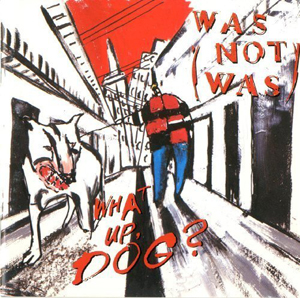 In the end, it kind of messed with our growth as artists. We were interrupted and we never got our groove back, so as a producer, I always fight the good fight for having a long range vision of things there. Albums, like “Voodoo Lounge,” is a good example. It was well received and it sold records, but it’s only now that people are coming up to me and saying, “Wow, I never realized that song was about that.” It takes a while for it to sink in. That wasn’t a compromised album…We weren’t trying to chase the pop charts or anything and I think that’s how you gotta make music. Be true to yourself and be in it for the long haul. Your only prayer, your super power, in fact, is the musician is the thing that makes you different from everybody else. You’ve got to be the best version of you that you can be and the thing that makes you different is your strength, so play to your strength.
In the end, it kind of messed with our growth as artists. We were interrupted and we never got our groove back, so as a producer, I always fight the good fight for having a long range vision of things there. Albums, like “Voodoo Lounge,” is a good example. It was well received and it sold records, but it’s only now that people are coming up to me and saying, “Wow, I never realized that song was about that.” It takes a while for it to sink in. That wasn’t a compromised album…We weren’t trying to chase the pop charts or anything and I think that’s how you gotta make music. Be true to yourself and be in it for the long haul. Your only prayer, your super power, in fact, is the musician is the thing that makes you different from everybody else. You’ve got to be the best version of you that you can be and the thing that makes you different is your strength, so play to your strength.
“Voodoo Lounge” was actually an entire generation’s introduction to the Stones in the 1990s. I think it’s a classic.
Was: Yeah, well that’s good. I mean, I think it’s a real Stones record. I went to see the Rolling Stones the first time in 1964 and they were awesome then. I bought every record of theirs up until the ones I started producing because I didn’t have to buy them at that point (laughs). I was a fan. I still am a big Stones fan. I like it when they sound like the Stones. I love the blues album we made in 2016, [“Blue & Lonesome”]. I think we got the essence of The Rolling Stones on that one.
What does being an artist and a producer bring to running a record label that a typical executive might not have?
Was: I think it’s a sensitivity to what it’s like to be on the other side of the glass, to be the one writing the songs and making the music. There’s even a certain way to talk to an artist that encourages them and makes them feel comfortable to keep exploring rather than freaks ‘em out, [like] if your record company comes to you and says, “We need this out for the fourth quarter. Your deadline is June 30. You’ve gotta finish this.” If you’re making a record, you’re engaged in the noble pursuit of turning life into notes. It doesn’t necessarily coincide with the calendar (laughs), you know? You start putting stupid deadlines on people, then you really compromise the music, so I try to be tuned into that. A lot of things that are considered to be conventional wisdom in the music business aren’t necessarily true (laughs). They’re just common practices, but they may not be the best practices. You’ve gotta sort through that, and knowing how records are made, and what someone’s going through when they’re writing a song, or trying to do a vocal, or capture a certain thing, to have an understanding, I think, is helpful from a record company standpoint.
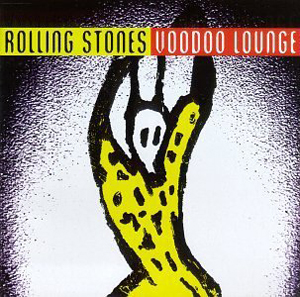 As the music industry continues to change so drastically, what do you consider the role of a record label to be now and how do you hope to steer Blue Note into the future?
As the music industry continues to change so drastically, what do you consider the role of a record label to be now and how do you hope to steer Blue Note into the future?
Was: I don’t think the role has changed that much. Your role is to make sure as many people as possible have the opportunity to hear that music under the best possible circumstances and that’s what we try to do. I think, in the end, making great music that gets under people’s skin, that means something to them, that helps them deal with the craziness of life, brings them some comfort through times of adversity and underlines the beauty that surrounds us all the time, that sometimes we get too confused to see, that’s timeless and that’s the thing that matters. So make records that do that and promote the hell out of ‘em (laughs). It’s not that complicated really. The delivery systems may change, but the mission of music never changes.
Does the Pan-Detroit Ensemble have its sights on recording?
Was: We’re definitely recording, but we’re not going into it looking for hit records or anything. The coolest thing about being older is that you do s*** for the right reasons (laughs). The reward is playing, getting in front of that audience at Space, having that moment of communication with the people who come to the show and everyone elevating their moods together. That’s what you do it for. You don’t do it for the bread. You don’t do it for the fame. You don’t do it for the glory. You get paid in that moment when you connect with an audience. It’s the most exhilarating feeling an artist can ever experience, so at this point, if we go into a studio to make a record, it’s for the right reason. We’re not trying to get on the radio and get hits. We’re just trying to express something that’s within us that hopefully will make other people feel better. My goal is that anyone who comes to a show, a Pan-Detroit Ensemble show, will walk out of there feeling better, even in troubled times, than they did when they walked in.
Don Was & The Pan Detroit Ensemble perform at Space on Wednesday, May 22 at 7pm and 9:30pm. For additional details, visit DonWas.com and EvanstonSpace.com.

